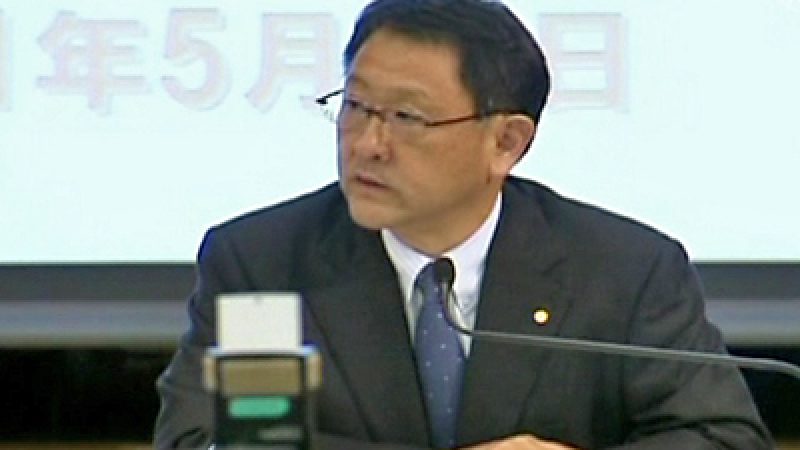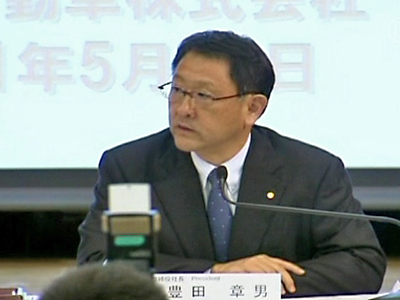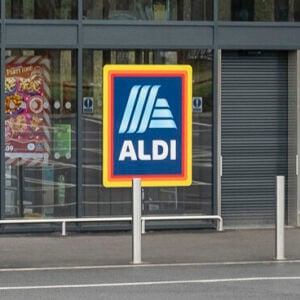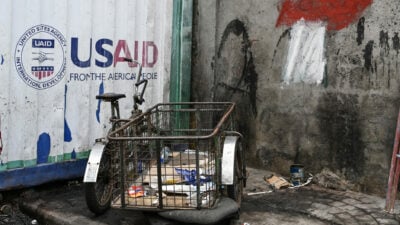
Toyota Profits Down, Divided Opinion on Outlook

Toyota Motor posted a 52 percent fall in quarterly operating profits on Wednesday. As expected, the company did not give an annual forecast, as it struggles to measure the scope of the disruption to production after the March 11 earthquake.
The world’s biggest automaker is facing another tough year.
A severe shortage of parts caused by Japan’s biggest earthquake disrupted production just as it was putting its recall woes behind it.
President Akio Toyoda says the automaker should see a 70 percent increase in output from pre-quake plans starting in June, earlier than expected.
[Akio Toyoda, President, Toyota Motor]:
„We’ve made it possible to bring up production that originally would only start in July or August for now June. It’s the product of incredible hard work by everyone in the field.“
Toyota’s Executive Vice President Satoshi Ozawa says the total impact of the earthquake and nuclear crisis has cost Toyota nearly $1.4 billion.
The massive hit to production will almost certainly mean Toyota will fall behind General Motors and possibly Volkswagen to rank third in global vehicle sales this year.
With inventory tight and supplies short for popular models such as the Prius hybrid, Toyota is losing consumers to rivals such as South Korea’s Hyundai Motor.
On Wednesday Toyota said its January-March operating profit was $570 million.
For the business year to March 2012, analysts forecast an average operating profit of $3.83 billion, down 34 percent from last year.
Analysts say the disruption is a temporary one caused by the shortage of supply, not demand, and that Japanese automakers should reverse the trend the next business year.
However, some fear Toyota’s production line may be affected by potential power outages.
Toyota says the effects will be minimal.
 Foto: NTD
Foto: NTD



























vielen Dank, dass Sie unseren Kommentar-Bereich nutzen.
Bitte verzichten Sie auf Unterstellungen, Schimpfworte, aggressive Formulierungen und Werbe-Links. Solche Kommentare werden wir nicht veröffentlichen. Dies umfasst ebenso abschweifende Kommentare, die keinen konkreten Bezug zum jeweiligen Artikel haben. Viele Kommentare waren bisher schon anregend und auf die Themen bezogen. Wir bitten Sie um eine Qualität, die den Artikeln entspricht, so haben wir alle etwas davon.
Da wir die Verantwortung für jeden veröffentlichten Kommentar tragen, geben wir Kommentare erst nach einer Prüfung frei. Je nach Aufkommen kann es deswegen zu zeitlichen Verzögerungen kommen.
Ihre Epoch Times - Redaktion